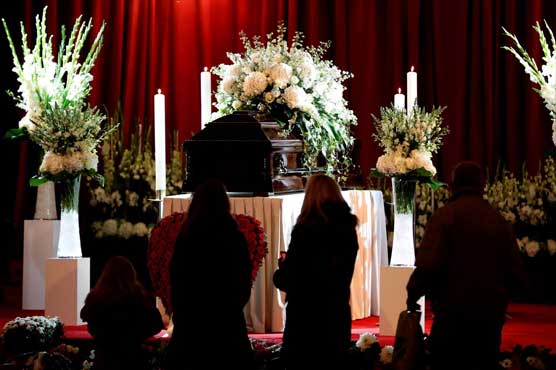Czechs bid final farewell to Karel Gott, Eastern Europe's Sinatra

Czechs bid final farewell to Karel Gott, Eastern Europe's Sinatra.
PRAGUE (Reuters) - Czechs bid a final farewell on Friday to singer Karel Gott, standing in line for hours to pay their respects to the man whose popularity in former communist Europe earned him the nickname the “Sinatra of the East”.
By mid-morning mourners of all ages - many clutching a single rose - stretched back at least two kilometres from the Zofin Palace building in Prague where Gott’s flower-covered coffin lay in state.
“I will always remember him because he was part of my life for 57 years and that’s why I want to pay him respects for everything he gave us in his songs,” Iva Skudrnpova, a pensioner from Prague, said.
An estimated 300,000 people were expected to pass through the Neo-Renaissance building on the Vltava River to say goodbye to the smooth-voiced singer, who shot to stardom under communism and remained popular after the 1989 Velvet Revolution.
He died on Oct. 1 at the age of 80, after announcing in September that he was battling acute leukaemia.
Unlike many other Czech artists, Gott performed at home and abroad after the 1968 Soviet-led invasion of Czechoslovakia. His signing of the so-called “Anti-Charter” opposing the dissident Charter 77 petition - published in 1997 calling for respect for international human rights - also did little to dent his popularity.
Gott was popular across eastern Europe, often singing in German, and in Russia, and also performed in the West during the communist era. He spent six months in Las Vegas in 1967 and later returned to the United States, including giving two concerts at New York’s Carnegie Hall in 2000 and 2005.
In recent years, health problems had slowed him down, but he promised to keep performing despite his illnesses.
A mass will be held in Prague’s St Vitus Cathedral on Saturday for Gott, who is survived by two adult daughters from former relationships and had two children with his now widow, born in 2006 and 2008.

